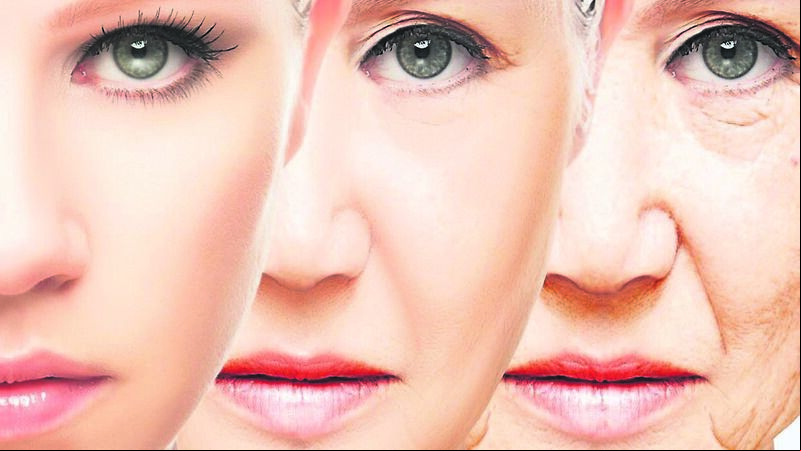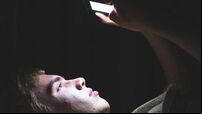Taking years off your looks is easy - just avoid the sunshine

My first thought was why would anybody even bother? What’s the point in trying to look like a 40-year-old if you are 60 years of age, after all, you can’t fool your body clock. And who cares anyway?
The wrinkles and lines we have are earned from the lives we’ve lived. They’re signs of experience, but many people prefer to be without them, opting instead for cosmetic surgery, which I’m sure doesn’t come cheap. It doesn’t come pain-free either.
A facelift is one method, but from what I’ve seen, trying to cod Mother Nature can often backfire.
Research suggests that 76% of people look younger than they did before the operation, but that means 24% could end up with a face like a trout.
They also say that 21% of facelifts relapse after five and a half years, so the whole business seems to be a bit of a gamble.
This procedure is not as common in men because it can be harder to achieve a natural appearance after surgery, due to the hair we have in front of our ears. Men are more prone to bleeding after a facelift too, apparently, so that’s that for me then.
They say there are two certainties in life, death and taxes, and whatever about dodging the Revenue, there’s no escaping the Grim Reaper.
Anyway, back to the radio programme, where an expert on skincare suggested that there was a much easier to way to have better skin and fewer wrinkles. Just use sun block from an early age and avoid exposure to direct sunshine - simple.
You would imagine that wouldn’t be such a big job for those of us living in Ireland, but apparently, we are just as much at risk here as they are in sunnier climes.
I like nothing better than feeling the heat of the sun on my bones, but I’m not much of a sunbather. I get bored when I lie in a sun lounger for too long and I always had an aversion to suncream, especially when it mixed with sweat and dripped into my eyes. I have improved in recent times though, mainly due to medical advice.
We know the sun’s rays can take a toll on our skin in the short-term in the form of sunburn, but there can also be long-term consequences lurking within the skin, even if we don’t experience a burn.
According to Yale Medicine, the sun prematurely ages the skin, called photoaging, and this can lead to skin cancer. It happens when ultraviolet (UV) light hits skin unprotected by sunscreen, causing DNA changes at a cellular level.
Because photodamage happens in the deepest layers of the skin, it can take years before the damage surfaces and becomes visible.
Ultraviolet light from the sun and/or tanning beds permanently damages the skin’s structure too. To see the difference between chronological aging and photoaging, compare skin on an area of your body that is not exposed to the sun with the skin on your face.
In general, lighter skin is more susceptible to photoaging and skin cancer.
Knowing this, you would have to wonder ing sunbeds at all.
The Irish Cancer Society tell us using sunbeds is not a safe way to get a tan because of the increased risk of skin cancer, the fastest growing cancer in Ireland.
There are more than 13,000 new cases of skin cancer diagnosed each year and by not using sunbeds and taking care when outdoors, most of these cases could be prevented.
The UV rays from sunbeds can be 15 times stronger than the midday Mediterranean sun.
The World Health Organisation has some frightening statistics. They tell us that even one sunbed session can increase your risk of developing squamous cell skin cancer by 67% and basal cell skin cancer by 29%.
If you have ever used a sunbed, your risk of melanoma increases by 20%. Using it before the age of 35 increases your risk by almost 60%.
People with a family member who has had skin cancer should avoid sunbeds too.
If you’re still concerned about wrinkles and premature aging though, don’t panic, help is on the, way.
The search for the secret of eternal youth is big business. CNN reported that, in Boston labs, old, blind mice have regained their eyesight, developed smarter, younger brains and built healthier muscle and kidney tissue.
The experiments show that ageing is a reversible process.
Some experts believe a loss in the cell’s ability to read its original DNA causes cells to forget how to function, in much the same way an old computer may develop corrupted software.
Now scientists believe they are getting closer to finding the switch to reverse that.
Billions of dollars are being spent on anti-ageing research trying to find a method to turn back the clock.
I don’t expect to see it in my lifetime, and I’m not sure I would want to either. I get a bit squeamish at the thought of messing with our DNA. That’s how we ended up with the Incredible Hulk.







 App?
App?




